Sinn Féin's journey from political pariahs to Stormont power brokers
- Published
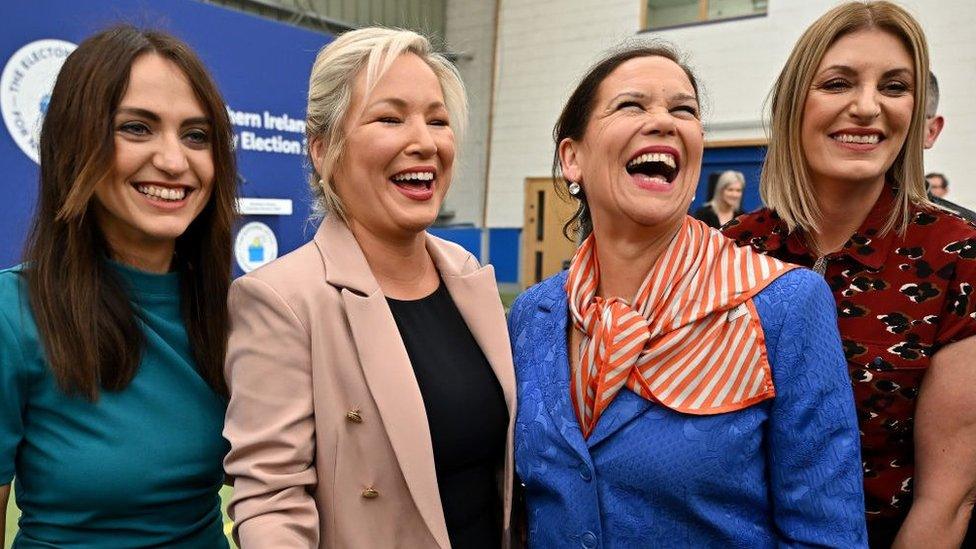
Sinn Féin's Michelle O'Neill (second left) with party leader Mary Lou McDonald and returning assembly members Emma Sheerin (left) and Linda Dillon (far right)
There was a time in Northern Ireland when Sinn Féin voices were silenced.
Banned from the airwaves by the government to combat IRA propaganda.
The BBC even employed an actor to voice the words of the then Sinn Féin President Gerry Adams.
But this weekend Sinn Féin voices were in high demand as broadcasters scrambled to get them on air.
They all wanted to hear from the one-time political pariahs who are now the political powerbrokers at Stormont.
And pose the question: Does its victory push Northern Ireland closer to a border poll and possibly Irish unity?
Communication is no longer a problem for Sinn Féin as its message struck a chord with a quarter of a million voters.
But the timing was key.
Sinn Féin firstly played down the prospects of being the largest party, mindful of overplaying its hand too early.
But the party ramped it up the week before the poll, even pushing Michelle O'Neill as a "first minister for all" in a presidential-style pitch.
'Vote Jeffrey or get Michelle'
Though much of the ground work paving the way for Sinn Féin's success was already laid by the Democratic Unionist Party (DUP).
The slogan - vote Jeffrey to avoid getting Michelle - worked for both parties.
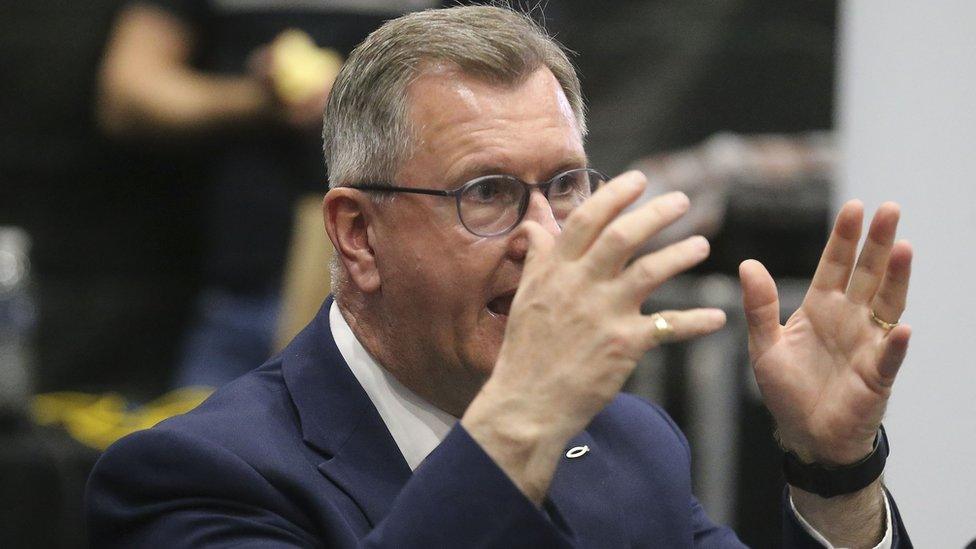
Jeffrey Donaldson won't say if he will rubberstamp Michelle O'Neill's appointment to the first minister role
It energised some DUP voters to stick with Sir Jeffrey Donaldson, despite what the polls predicted.
But crucially it also stoked nationalist voters to row in behind Sinn Féin like never before to push unionists off the Stormont summit for the first time.
Though the swing behind Sinn Féin came at a high cost to the Social Democratic and Labour Party (SDLP) as it lost four seats leaving it on an all-time low of just eight.
The party's deputy leader Nicola Mallon is among the casualties.
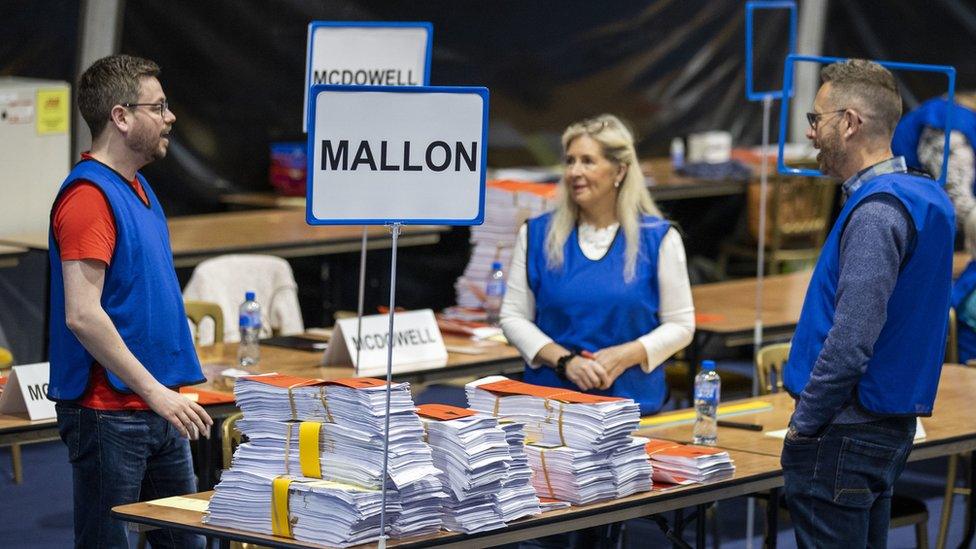
SDLP Infrastructure Minister Nichola Mallon lost her seat
A divided unionist vote also cleared the way for Sinn Féin, which returned with the same number of seats it held going into the poll.
The party is now entitled to the keys of the first minister's office.
Will Stormont return?
Though it comes with no extra power, the post has huge symbolic significance for unionists who've held it for 24 years.
But Michelle O'Neill will only get the keys to her new office if the DUP agree to her nomination.
Sir Jeffrey says he will respect the outcome of the poll - but he has so far refused to confirm if he will rubberstamp Michelle O'Neill's appointment by accepting the post of deputy first minister.
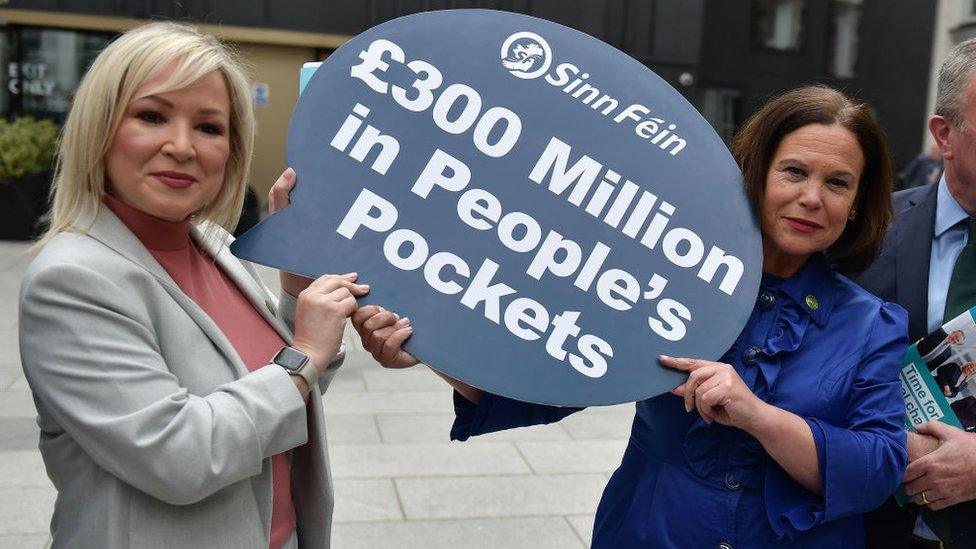
Michelle O'Neill at the party's manifesto launch with leader Mary Lou McDonald
Until he does, the Stormont stalemate will continue, with no power-sharing executive.
That means the outgoing caretaker ministers will continue to run departments.
But with no overarching executive, their powers will be limited.
They won't be able to use a £300m pot to help families deal with the cost of living crisis, although the DUP insists the money can be handed out.
Fewer stand-offs?
The parties have six months to agree a new power-sharing executive and history tells us they are likely to take every minute.
But if the executive returns then it will have a new look courtesy of the Alliance surge.
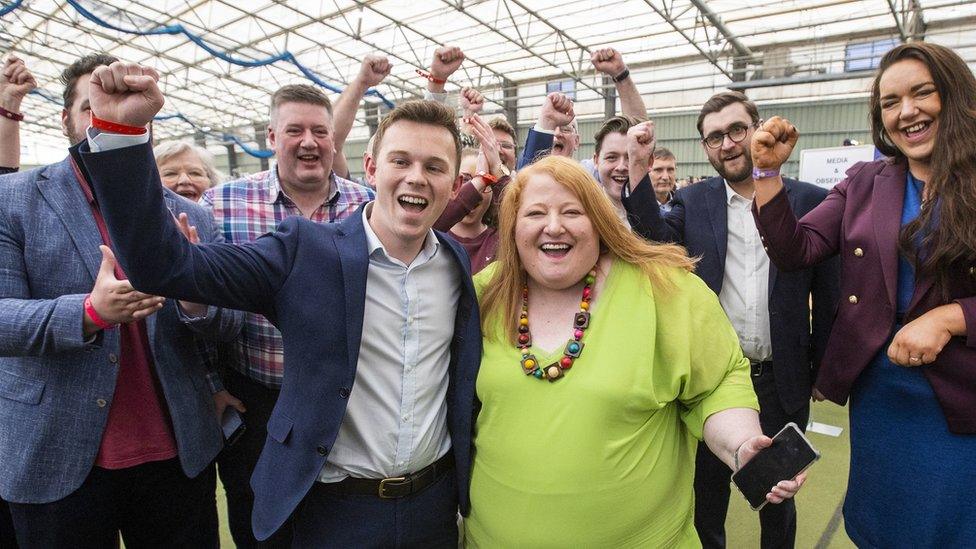
Newly-elected Alliance assembly member Eóin Tennyson celebrates with party leader Naomi Long
The party with 17 seats will be entitled to two ministerial posts which is likely to include the justice portfolio.
It is also likely the SDLP and Ulster Unionists will end up on the opposition benches, leaving just three parties in the executive.
That will change the dynamic but will it mean better delivery and fewer stand-offs?
It has been a bruising election for the DUP and Ulster Unionists with a drop in their vote and seats.
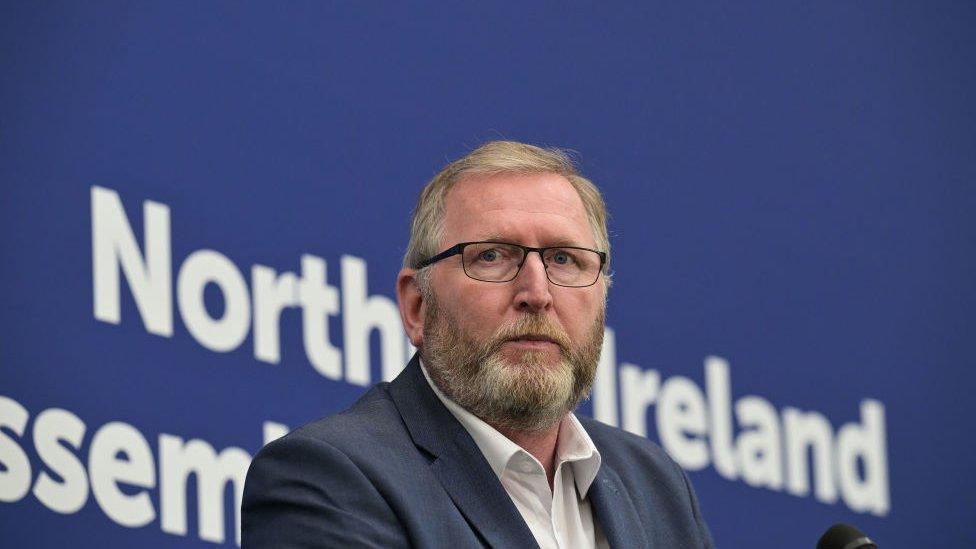
UUP leader Doug Beattie retained his seat - but it's been a disappointing election for his party
Though the Traditional Unionist Voice party (TUV) broke new ground, increasing its vote by more than 5%, it failed to secure transfers to add to the sole seat held by party leader Jim Allister.
His party's increase appears to have come from disillusioned DUP voters whose votes then transferred back to Sir Jeffrey's party.
Irish unity
It's a move which the DUP says played into the hands of Sinn Féin and no doubt it will be used to warn unionist voters again.
The DUP warning about Sinn Féin using its new Stormont status to push for a border poll will also be tested before the next poll.
While Sinn Féin was reluctant to promote its border poll ambitions during the election campaign, expect it to be back on the agenda now.
But the party says it will be a decade-long plan at least which will only come after an island-wide conversation.
The decision to hold a border poll is for the Northern Ireland secretary of state, when he or she feels there is more of an appetite for Irish unity.
But you may now find talk of a border poll will slowly fade if a power-sharing executive returns and no votes are on the line.
Though the 2022 assembly election will be remembered for the Sinn Féin breakthrough and Alliance advance, it may also mark a turning point in how Stormont functions - if and when it fully returns.
- Published8 May 2022
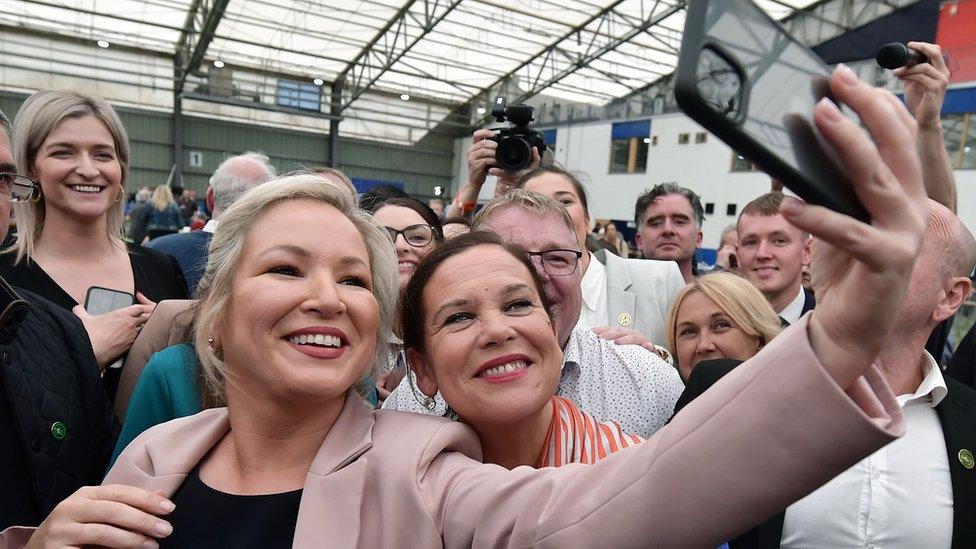
- Published8 May 2022

